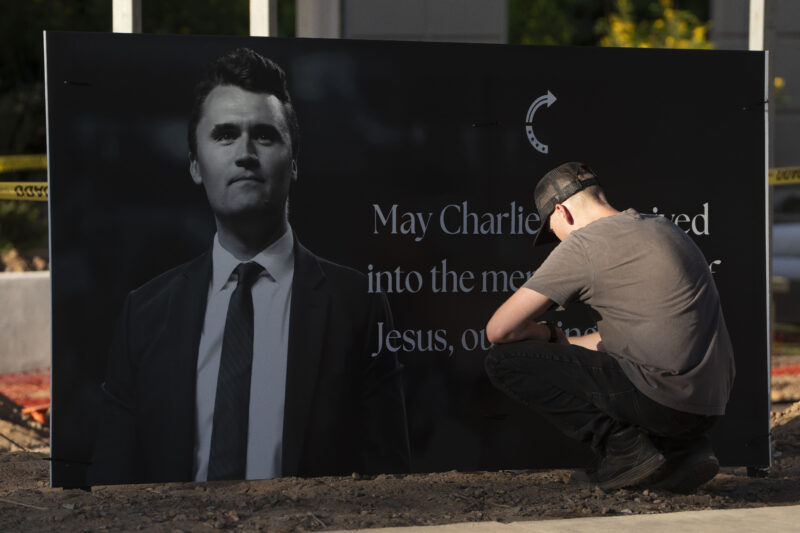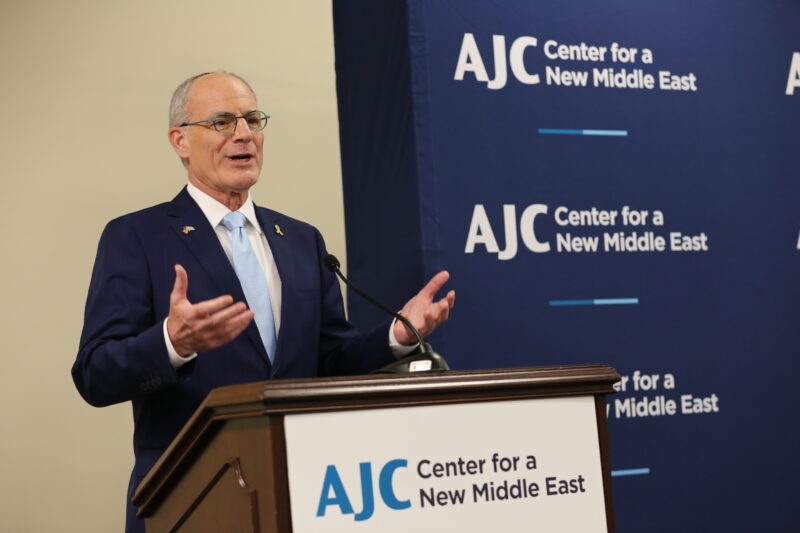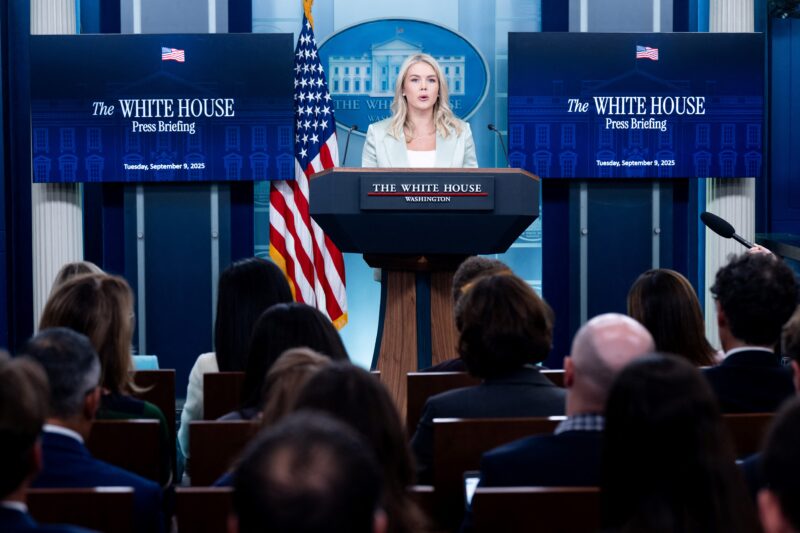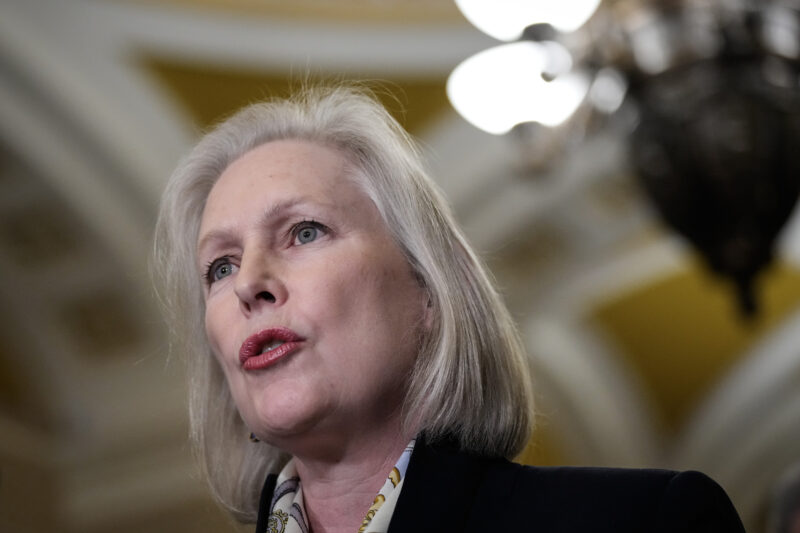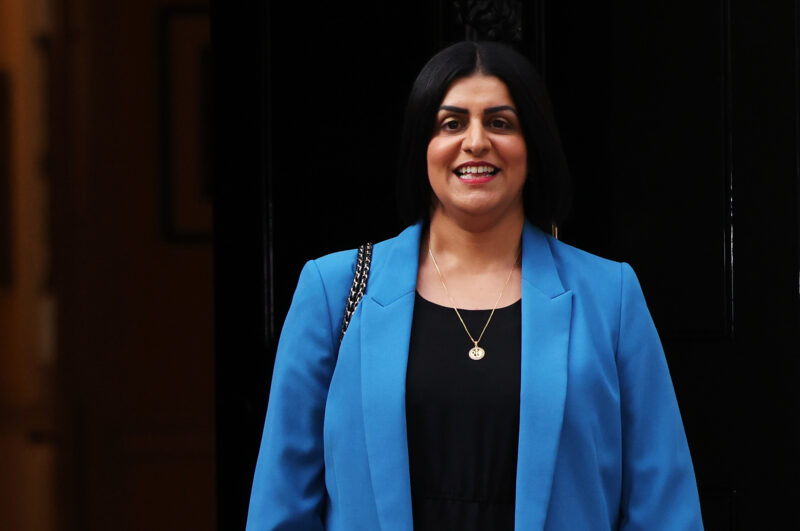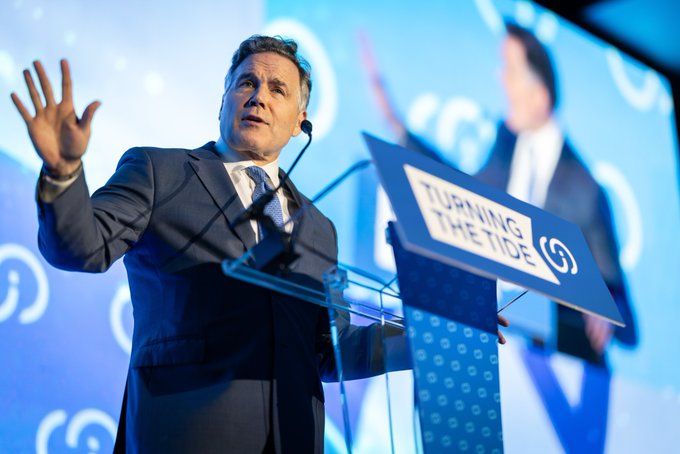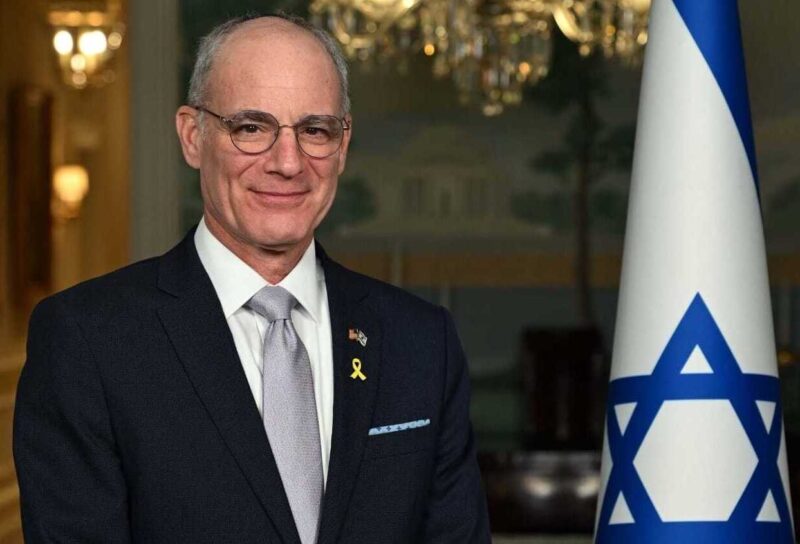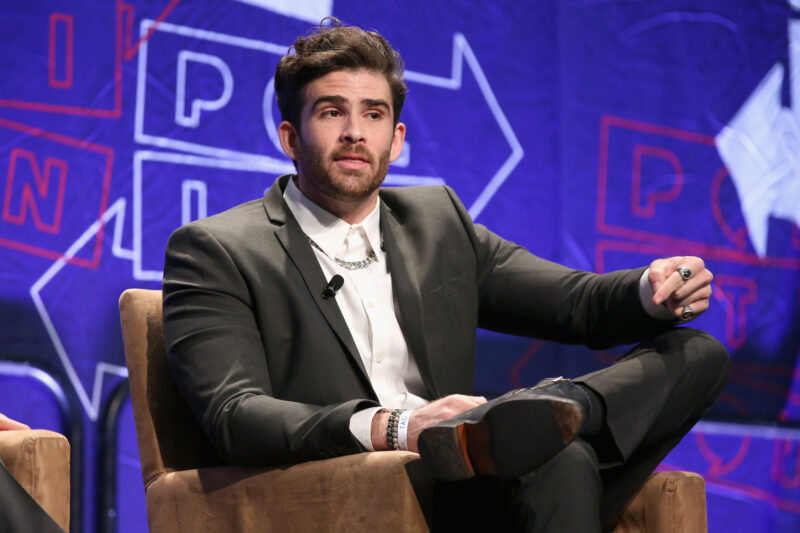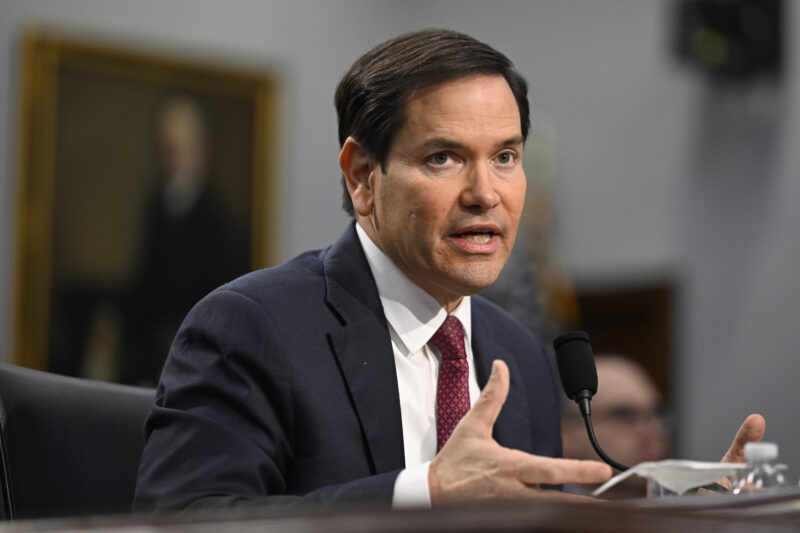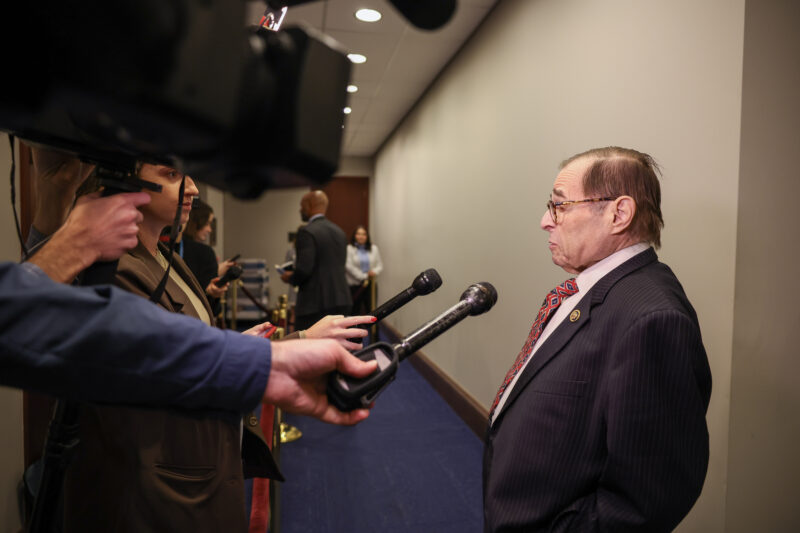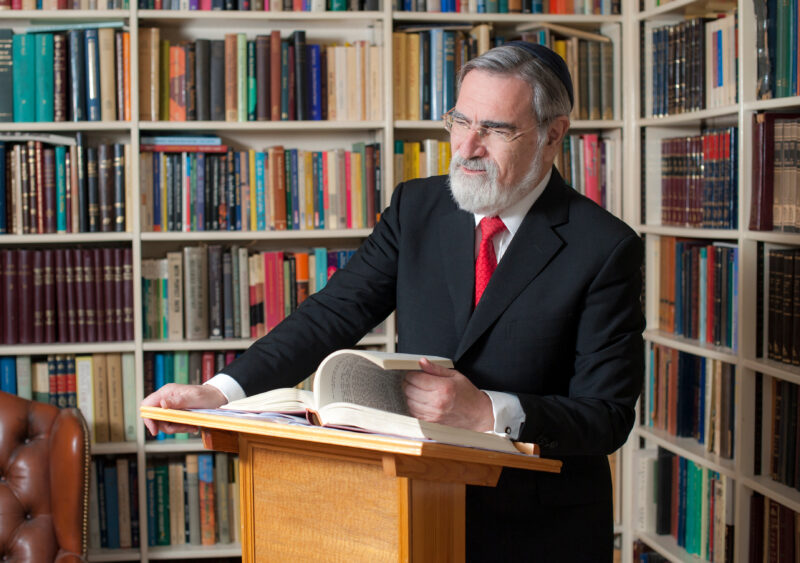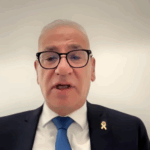Calling for genocide of Jews doesn’t violate school policy, university presidents tell Congress
Jewish MIT student, on the hearing: ‘Mostly it was just lip service — it was the same lip service that we’ve heard the whole time.’

WASHINGTON, DC - DECEMBER 05: (L-R) Dr. Claudine Gay, President of Harvard University, Liz Magill, President of University of Pennsylvania, Dr. Pamela Nadell, Professor of History and Jewish Studies at American University, and Dr. Sally Kornbluth, President of Massachusetts Institute of Technology, testify before the House Education and Workforce Committee (Photo by Kevin Dietsch/Getty Images)
Pressed by lawmakers Wednesday, presidents of three top universities all refused to say that calling for the genocide of Jews was inherently a violation of their campus policies on harassment and bullying.
The presidents of Harvard, the University of Pennsylvania and the Massachusetts Institute of Technology, who have come under scrutiny for their responses to antisemitic incidents on their campuses, testified about antisemitism on their campuses before the House Committee on Education and the Workforce yesterday.
Rep. Elise Stefanik (R-NY) pressed each leader on whether calls for Jewish genocide — which she said were embodied in “intifada” chants heard on campuses across the country — violated their schools’ policies. None of the three presidents offered a direct or affirmative answer.
“If the speech turns into conduct, it can be harassment, yes,” Penn president Liz Magill said. “It is a context dependent decision.”
“Conduct meaning committing the act of genocide?” Stefanik shot back, incredulous. “The speech is not harassment?”
Harvard President Claudine Gay also said “it depends on the context” and MIT President Sally Kornbluth answered that it could constitute harassment “if the speech turns into conduct.”
Stefanik described the answers they provided as “dehumanizing” Jewish students.
The presidents’ responses echoed answers that they had provided throughout the hearing. They disavowed antisemitism and hateful conduct, but generally said that hateful speech is protected by their campus policies and the First Amendment unless it crosses over into action.
They often declined or refused to offer specific details on how or whether they had disciplined or would discipline students involved in antisemitic activity that appeared to violate their policies. They also evaded direct questions about what sorts of comments would be unacceptable on their campuses.
Students from the schools said their administrators’ responses were insufficient.
Talia Khan, a graduate student at MIT and president of the MIT Israel Alliance, told Jewish Insider, “mostly it was just lip service — it was the same lip service that we’ve heard the whole time.”
Khan, who attended the Tuesday hearing, said that Kornbluth’s responses to Stefanik’s question were “horrendous” and “crazy.”
“If anyone were, God forbid, calling for the genocide of any other ethnic group, for sure those people would be kicked of campus,” Khan said. “The only time it’s a controversy is just because it’s Jewish people. And it was textbook dehumanization of Jews.”
Khan said the school is doing “nothing” currently to make Jewish students feel safe, and said some of the responses Kornbluth had given to the committee about disciplinary procedures did not reflect the realities on the ground.
She said that in direct conversations with Kornbluth, the MIT president had even evaded questions about committing to applying all of the school’s rules equally to all student groups and individuals.
“We’re so tired of fighting, and then just hearing this… lip service. You heard it today, in the hearing,” Khan said. “We really need these presidents to act now.”
Khan also spoke alongside students from several other schools at a press conference with House Republican leaders on Tuesday morning before the hearing about her experiences on campus. She said it was “sad” to talk to the students from other universities and hear that they’ve had similar experiences on their own campuses.
Khan said she was hopeful that the hearing would prompt further and stronger action by Kornbluth “because all they were really getting were students constantly complaining and clearly that wasn’t working.”
Jacob Miller, the president of the Harvard Hillel, told Jewish Insider he was “very disappointed” by Gay’s “refusal to condemn calls for genocide against Jews as harassment and bullying.”
“I thought that aspect of her testimony was very disconcerting,” Miller said. “That [response] to me indicated that the decision not to discipline these students [chanting for intifada] didn’t result from a generous interpretation of what the students have been calling for. It stems from an inability from the school to confront this issue head on.”
In a subsequent statement, Miller and Harvard Hillel Rabbi Getzel Davis said Gay’s testimony “fails to reassure us that the University is seriously concerned about the antisemitic rhetoric pervasive on campus.”
Contrary to Gay’s testimony on the various steps she and campus administrators are taking, Miller said that students have few opportunities to interact with her, and he’s been disappointed with how slowly the school has responded to antisemitism on campus at an institutional level.
“I think she has a very good group of people advising her,” he said regarding a new antisemitism advisory group, “but I’m concerned she’s not taking the matter as seriously as she should…. She has been very good at saying the right things. But there hasn’t been enough of a follow up.”
ADL CEO Jonathan Greenblatt said in a statement to JI that the campus presidents’ testimonies were “as disastrous as it was disheartening.”
“Jewish students are facing a tsunami of antisemitism on campus, and it is long overdue for universities to enforce their own codes of conduct and to suspend students who violate them. While we appreciate the steps administrators are taking to make their schools safer for Jewish students, I would still give university leaders an ‘F’ for their failure to protect their Jewish students,” he said. “If campus presidents are incapable of demonstrating moral leadership, we will use every legal and financial tool available to us, including Title VI, to ensure the safety and civil rights of all Jewish students.”
Gay and Magill did offer stronger personal condemnations of “intifada” chants at other points in the hearing.
Gay said that intifada chants are “evil” and “personally abhorrent to me,” describing such rhetoric as “thoughtless, reckless and hateful” and “at odds with the values of Harvard,” although she again would not say it inherently violates the school’s code of conduct.
Magill said she had found a video played by Republicans, which featured clips from anti-Israel protests at Penn, “very hard to watch.”
“The chanting, I think, calling for ‘intifada, global revolution,’ [was] very disturbing. And I can imagine many people’s reaction to that would be one of fear,” she said. “At a minimum that is hateful speech that has been and should be condemned. Whether it rises to the level of incitement to violence under policies that Penn and the City of Philadelphia follow… I think is a much more difficult question. The incitement to violence is a very narrow category.”
They said that they view antisemitism as being part of the responsibility of their campuses’ DEI offices — although they also said these efforts need to extend beyond the DEI offices and must be improved.
Kornbluth particularly said that MIT plans to ensure that DEI staff are trained on the subject. Khan said that Kornbluth’s response on DEI flies in the face of Jewish students’ experiences with those staffers.
She said that the school’s DEI and discrimination and harassment and response offices have told Jews that they are not a protected class and that they don’t feel that protecting them is part of their responsibilities. One DEI staffer denied the Hamas atrocities on social media, according to Khan.
Gay sought to brush aside criticisms that she was too slow to respond to the Oct. 7 attack, claiming that she had been busy focusing on ensuring students and faculty in Israel were safe.
“Had I known that the statement issued by the students would have been wrongly attributed to the university, I would have spoken sooner about it,” Gay acknowledged, referring to a controversial statement by student groups describing Israel as “entirely responsible” for the Hamas attack.
Kornbluth had come under fire for earlier comments, following a disruptive campus protest, that suggested that the school was withholding disciplinary action against some students involved because they could lose their visas.
She said on Wednesday that the disciplinary process for that protest is still in progress.
Gay testified that all students “irrespective of their citizenship are held accountable for following our policies,” and would be held accountable if they violated those policies.
Magill was pressed on Penn’s hosting, prior to the Oct. 7 massacre, of a Palestine Writes Festival which featured numerous speakers accused of antisemitism.
She argued that canceling the conference would have violated the school’s commitments to freedom of speech and free expression, but acknowledged that she would have had the authority to cancel it if campus security officials deemed it a security issue. She also largely dodged questions about the specific antisemitic speakers.
“Canceling that conference would have been very inconsistent with academic freedom and free expression, despite the fact that the views of some of the people who came to that conference I find very, very objectionable,” she said.
The presidents would not commit to suspending or banning chapters of Students for Justice in Palestine, or similarly affiliated groups, on their campuses, while stating that all student groups are accountable to their schools’ conduct policies.
Some lawmakers also asked the presidents if donations, particularly from Qatar, are influencing their policies, statements and curricula on antisemitism or Israel, which all three denied.
Gay insisted that Harvard would not accept gifts that would create a “conflict of interest” or be “inconsistent with our mission,” and that gifts do not impact administrative decisions. Kornbluth said that MIT maintains full control over research funded by outside grants and has an extensive review process, including considerations of economic and national security.
Magill said that Penn has received only small donations from alumni living in Qatar.
Some of the college presidents and Democrats on the committee repeatedly called during the hearing for additional funding to the Office of Civil Rights in the Department of Education. Republicans are seeking to cut funding to the division.
The university presidents also each testified to their personal opposition to antisemitism and acknowledged the need for stronger educational programming on their campuses to combat antisemitism.
Miller is a former Jewish Insider editorial fellow.




